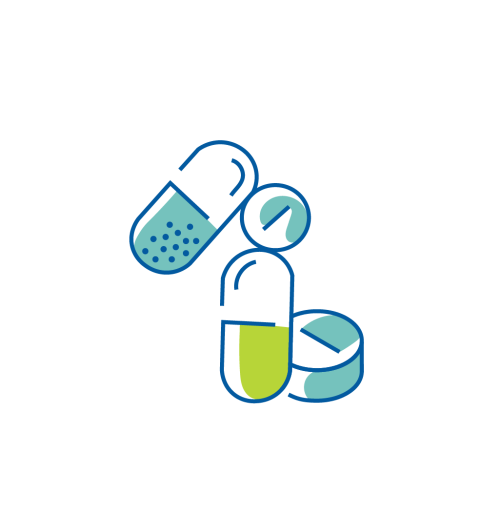
Stage 4 chronic kidney disease (CKD) causes, symptoms and treatment

What is Stage 4 CKD?
Stage 4 CKD means that your kidneys are moderately or severely damaged and are not properly filtering waste from your blood. When your kidneys aren't properly filtering waste products like urea and creatinine from your blood, it can lead to a condition called uremia. This waste buildup can cause other health problems, such as:
- High blood pressure
- Anemia (not enough red blood cells in your body)
- Bone disease
- Heart disease
- High potassium (hyperkalemia)
- High phosphorus (hyperphosphatemia)
- Metabolic acidosis (a buildup of acid in your body)
What are the symptoms of Stage 4 CKD?
Symptoms of Stage 4 CKD may include:
- Feeling weak and tired
- Swelling in your arms or legs
- Urinating more or less often than normal
- Pain in your lower back
- Muscle cramps
- Feeling sick to your stomach or throwing up
- Feeling less hungry than normal
How can doctors tell my stage of CKD?
To find out what stage of CKD you are in, doctors will do tests, such as:
Learn more about tests for kidney disease
How can doctors tell what caused my CKD?
To try and find out what caused your CKD, your doctor may do other tests, including:
- Blood pressure checks
- Urine tests
- Imaging tests to take detailed pictures of the inside of your body, such as ultrasound, CT scan, or MRI
- Kidney biopsy (a procedure where doctors take a small piece of tissue from your kidneys to look at it under a microscope)
- Genetic testing (if doctors suspect a rare disease or one that runs in your family)
Know your cause
Understanding the cause of your kidney disease is the first step toward effective management. Use this tool to learn the right questions to ask your doctor, discover if additional tests are needed, and gain insights into your kidney function. Be proactive, informed, and empowered to make the best decisions for your care.
How do doctors treat Stage 4 CKD?
At this stage, you will need to see a nephrologist (kidney doctor). Your nephrologist will treat Stage 4 CKD with medicines that help with your symptoms and other health problems that kidney disease can cause, such as diabetes and high blood pressure.

These medicines include:
- Blood pressure medicines like ACE inhibitors and ARBs (even if you do not have high blood pressure, these medicines can slow the damage to your kidneys to keep them working well as long as possible)
- Diabetes medicines to keep your blood sugar at a healthy level (even if you do not have diabetes)
- Calcium and vitamin D supplements to keep your bones strong
- Diuretics to help with swelling (these are medicines that help your kidneys get rid of salt and water and make you urinate more)
- Erythropoiesis-stimulating agents (ESAs) or iron supplements to help with anemia (not enough red blood cells in your body)
- SGLT2 inhibitors to protect your kidneys and lower blood sugar levels
- Nonsteroidal mineralocorticoid receptor antagonists (nMRA) to reduce swelling and help prevent further kidney damage
Your doctor may tell you to stop taking medicines that can damage your kidneys, such as pain medicines called NSAIDs (nonsteroidal anti-inflammatory medicines).
Your nephrologist will decide if your kidneys are close to failure and if you need to start treatment. If you need treatment, they will talk with you about your choices, which include:
- Dialysis: a treatment to clean your blood when your kidneys cannot.
- A kidney transplant: surgery to give you a kidney from someone else's body.
You may be eligible to get on the transplant waitlist when your eGFR is 20 or below, but it's a good idea to start thinking about the process when your GFR is between 25 and 30. Starting the conversation early — even before you reach end-stage kidney failure — gives you time to explore your transplant options and prepare. Understand the transplant process.

There is usually no cure for CKD, and you usually cannot reverse the kidney damage you already have by the time you get to stage 4 CKD. However, you can take steps to slow down the damage to your kidneys and help you feel your best.
How can I slow down the damage to my kidneys?
There is no cure for CKD, and kidney damage isn't reversible. However, you can take steps to slow down the damage and help you feel your best.
To slow down the damage to your kidneys, your doctor will recommend that you:
- Have visits with a nephrologist about every three months.
- Meet with a dietitian (nutrition expert) to help you create and follow a kidney-friendly eating plan.
- Keep your blood pressure at a healthy level. Your doctor may prescribe blood pressure medicines like ACE inhibitors and ARBs.
- Keep your blood sugar at a healthy level if you have diabetes.
- Be active for at least 30 minutes on most days of the week. This can be anything from walking or riding a bike to swimming or dancing.
- Quit smoking or using tobacco.
How long can I live with Stage 4 CKD?
How long you may live depends on many things, such as:
- Your age when diagnosed with CKD
- How well you follow your treatment plan
- Your albuminuria stage (the amount of protein or albumin in your urine). This helps determine your risk of kidney disease progression. Higher levels of albumin in your urine indicate a greater risk, so monitoring this closely with your doctor is important.
- Other health problems you have
How can I manage the stress of stage 4 CKD?
It's important to recognize that emotional health is as critical as physical health during this time. Mental health resources are available to help manage these challenges, offering support for coping with the stress of treatment, navigating difficult decisions, and finding peace during uncertainty. These resources provide a lifeline, offering emotional support and guidance to help patients and their loved ones find strength.



